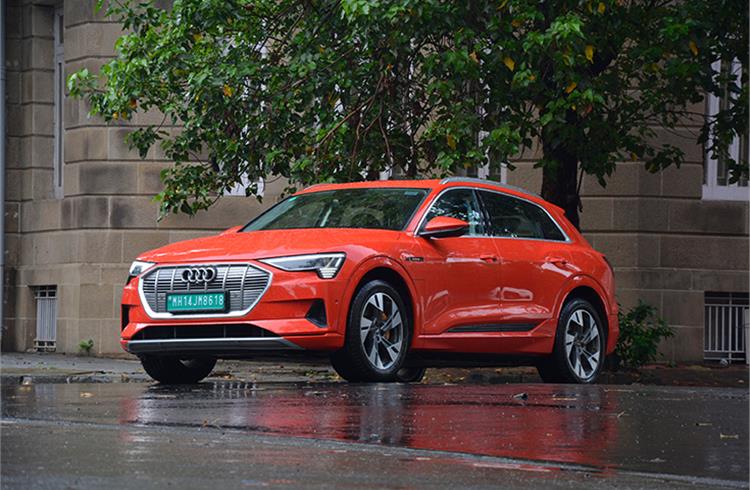Audi India’s 2021 sales double, eyes GST rationalisation
Nine new products including EVs drive Audi’s sales in India. The uptick, however, comes on the back of a low base in 2020.
German luxury carmaker, Audi clocked retail sales of 3,293 cars in CY2021 across India, more than doubling its year-ago volumes of 1,638 units. The growth can be attributed to nine new models, including five EVs launched last year.
The uptick, however, comes on the back of a low base as 2020 sales were significantly hampered due to Covid-related lockdowns. Despite the notable growth, Audi India is far from reaching pre-Covid levels, when sales touched 6,463 units in CY2018 and 4,594 units in 2019, when it dropped 29 percent from CY2018 levels.
The Audi A4, A6, Q2, Q5 and Q8 continue to be the volume drivers for the brand in India, which claims sitting on a good order book for its performance-oriented cars – the S5 Sportback, RS 7 and RS Q8 – all of which come exclusively as CBUs.
In October 2021, the company began local assembly of the refreshed Q5 SUV, joining its peers – the A6 sedan, and Q7 SUV – at the Aurangabad facility in Maharashtra.
The five all-electric models launched last year under the e-tron sub-brand included the Audi e-tron 50, e-tron 55, e-tron Sportback 55, e-tron GT and RS e-tron GT. While the entry-level e-tron 50 is priced at Rs 99.99 lakh (ex-showroom), Audi India has set a 15 percent sales targets for EVs by 2025.
Audi India head, Balbir Singh Dhillon told Autocar Professional in an earlier interaction that, “We are currently the only brand to have five electric cars on offer in India. We will stabilise these models over the next few quarters, and we will definitely introduce more EVs as we move on.”
“We will always remain a niche player as we are addressing the luxury segment, but future EV launches will sit below the products that we have already introduced so far,” Dhillon had added.
“We expect the government to allow us to bring these cars (EVs) at a lower excise duty, for a three-five-year window, because we need to reach a volume threshold to decide to invest further into EV manufacturing in the country. Unless that threshold is met, it is difficult to bring more investments into India,” he explained.
Barring headwinds like the global chip shortage and impact of the Omicron variant, Audi India is hopeful of a promising 2022 calendar for the brand, with its focus set on enhancing digitisation, customer centricity, strengthening product portfolio and its network in the country.
The company also expects a GST rationalisation on luxury cars to boost the segment’s growth. Speaking on the sales performance for the year, Dhillon is confident about their prospects going forward, “With our promising portfolio of volume, performance and electric cars, we will continue to redefine luxury for our customers in India. We are confident of strong performance in the coming months.”
RELATED ARTICLES
Tata Elxsi-Renesas MCU for EVs enables cost optimisation, speedier time to market
Modular, scalable design of Motor Control Unit enables integration across diverse EV applications. Claimed to be reduce ...
Bosch hydrogen engine tech-powered truck to be on Indian roads this year
The global supplier of technology and services is betting big on both electromobility and hydrogen. While announcing the...
IIT Bombay inaugurates Arun Firodia Research Floor
IIT Bombay, one of India’s top technical and research institutions, honours Kinetic Group chairman Dr Arun Firodia, one ...





 03 Jan 2022
03 Jan 2022
 5644 Views
5644 Views





 Autocar Pro News Desk
Autocar Pro News Desk




